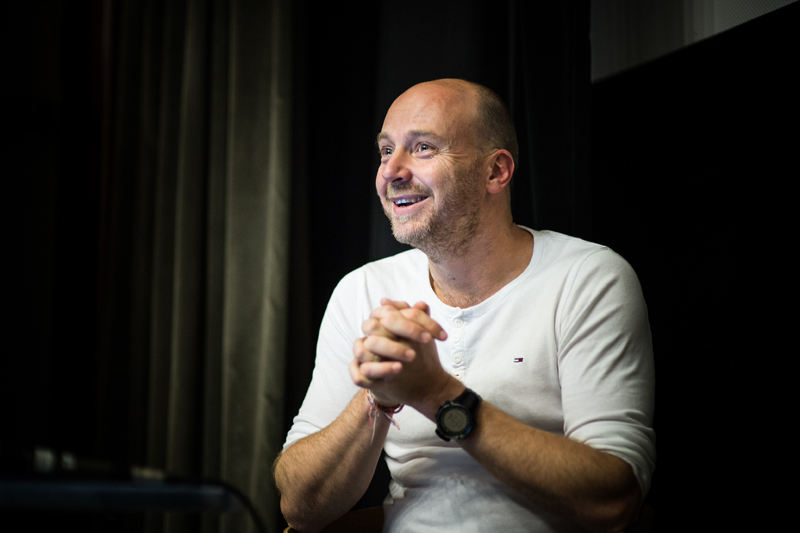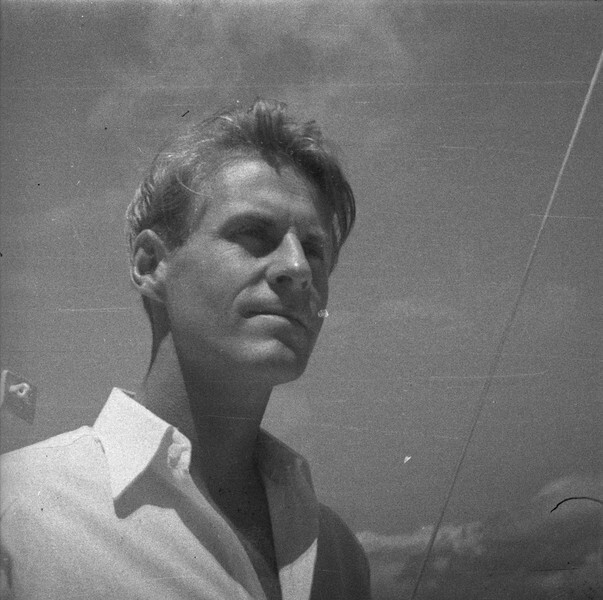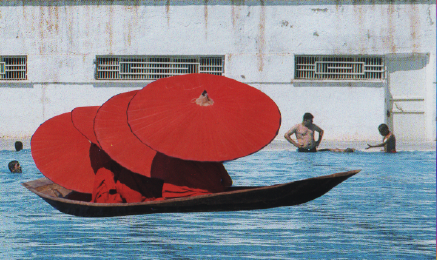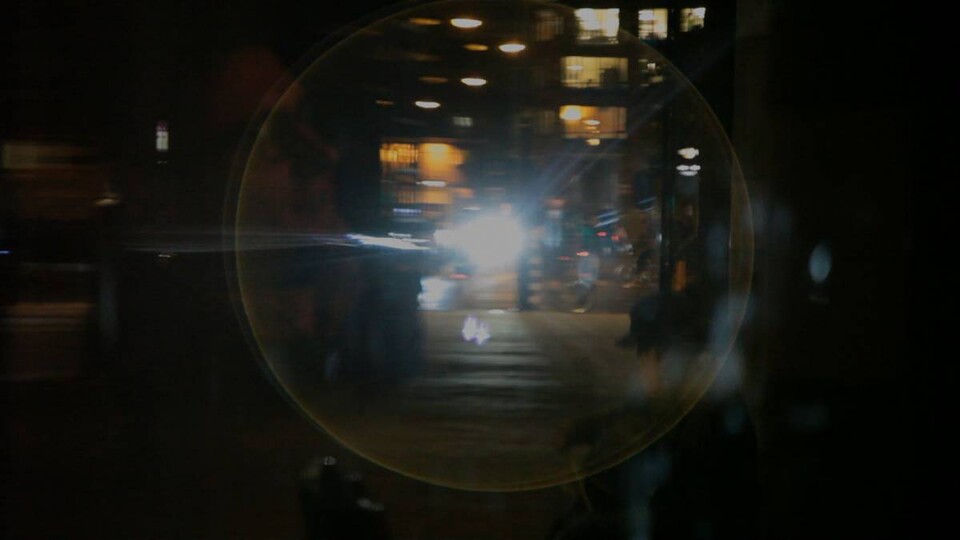Thor was Always Present in what He was Doing
Czech filmmaker Petr Horký (Old Man and the World) met Norwegian adventurer, anthropologist and filmmaker Thor Hyerdahl 18 years ago. They arranged their meeting via a prehistoric piece of equipment, the fax machine. Heyerdahl was a great role model and a close friend to Horký, even after his death, he is still in contact with Thor's wife, former Miss France, Jacqueline Heyerdahl. In 2001, Horký and Heyerdahl shot several episodes for the TV series Unknown Country (Neznámá země).
When and how did you first meet Thor Heyerdahl?
In 1997, together with my colleagues Miroslav Náplava and Pavel Pavel we simply decided that we wanted to meet with Hyerdhal and so we messaged him via fax. Three days later we received an answer in which he agreed to the meeting and gave us the choice of three dates for the meetings in different locations around the word. That’s when I realized what it meant to be a citizen of the world. He suggested a meeting at Tenerife with the same confidence as a person sets a meeting up at Vaclav Square in Prague, or under the clock in Brno. When I went to him for the first shooting, I felt like I was personally going to meet Captain Nemo. I still feel the first handshake. Meeting him was proof that the communist regime and Iron Curtain are gone for good and truly a new era is beginning.
On what did you collaborate with Heyerdahl?
At the time, Thor used his reputation and backed my very first documentary work, the series Unkown Country (2001) of about 21 episodes which deals with how the world changes in such a short time, during a lifetime of one person. And conversely, whether one person can change the world. Gradually we filmed in thirty-two countries, with people such as New Zealand mountaineer Edmund Hillary, the Italian-German explorer Reinhold Messner or the Russian hockey player Viktor Tikchonov. It was a huge education - both cinematically and people-wise. I consider the opportunity to meet so many exceptional personalities at such an early age, I was only 24 years old, as a great gift of fate. Later on, it was turned into a book and Czech Television, for which it was made, is broadcasting reruns of the series.
It is said that Heyerdahl was not a filmmaker, but an adventurer who happened to be filming. How did he approach his documentary work?
I must say that I did not know Thor as a director, documentary filmmaker. I feel that he considered documentaries to be part of his work, but neither did he himself see himself as solely a documentary filmmaker. I think he even perceived the Oscar he won for his film about the expedition Kon-Tiki, as an appreciation of the expedition, that it celebrated his anthropological work more than a filmmaking trophy. His vision always cantered around the expedition, project, theory- the film was a natural part of the complexity of his work.
Perhaps, that is why his documentaries are completely different compared to let’s say Czech documentary film work.
On the subject of the Czech filmmaker’s approach, foreigners often repeated that our directors do not like to listen to the opinions of others, they do not like changing anything and they are convinced that their view is the best and only one possible. This self-centeredness then takes away the potential power of Czech films. Thor used to say that fame is endless. There is no reason to be jealous of anyone, to hide your achievements of your work from anyone, or conceal your knowledge and skills. In the end it all mostly comes down to what is in us, what our ideas are and what is our ability to realize them. If one likes one anthropologist, it doesn’t mean that he has no room left in his heart for a second one. The secrets behind a great and quality creation lie in collaborations, openness and sharing.

Petr Horký at 19th Jihlava IDFF
What does Heyerdahl’s work mean to you?
His work says that there is an endless amount of topics and a bottomless well of inspiration. I like the old documentary Kon-Tiki, partly because I held the original ship diary and Oscar trophy in my hands and partly thanks to a number of debates with Heyerdahl. But the main thing is that it serves as a confirmation of what I believe and hope- no person should start films and, in fact, no creation with thoughts of what the market wants and "what would be saleable to the masses", but rather every good work should start with the creator thinking about what it encompasses, for what his heart yearns. Even then something complex at first glance and dealing with a non-commercial theme may become an issue to large crowds and audiences. When we started shooting Old Man and the World, my colleagues had predicted a maximum of five thousand viewers. Finally, ten times the amount found their way into the cinema. To me that is a miracle that I never dreamed of. It is also proof that it can work.
Did Thor Heyerdahl ever tell stories from his travels?
One story, to serve as an example for the rest- when they had crossed the Atlantic for the second time on the boat Ra II, built from papyrus, local politicians from Barbados were officially waiting for them with the Knights of Malta and a crowd had gathered. Tanned and bearded sailors dressed in shorts got off this reed boat. After a long time without any contact with solid ground, they suddenly were unable to stand or walk straight, and they had to weave their way just like medieval sailors, as if the earth was moving beneath their feet, as if they were drunk! They received a pin to mark the occasion and there was nowhere to pin it, so in order to avoid piercing skin, they each got a pin put in the palm of their hand. Heyerdhal, as the head of the expedition quickly borrowed the overcoat of a Knight of Malta and had the medal pinned to a borrowed cloak.
What do you always think of when you hear his name?
Not to show off, to stay open-minded to the views and ideas of others. Thor taught me the importance of the seemingly contradictory duality - the most valuable thing I have, is my outlook on the world shaped by my experience, knowledge, intelligence, wit and wisdom. I cannot find the valuable only outside, I would only be copying and complicating things. Contrariwise, it is important to try to be open-minded, admit your own mistakes, not to succumb to the illusion that it is solely me trying to create something that does not exist. Rather to see myself as a discoverer, who hast the gift to see things that may also be interesting to others in an already existing world. Whether in the form of a book or film. I find it's like in science – the scientist is not attempting to invent natural laws and regulations. But he has the gift, skills and knowledge to discover and describe, communicate them to others and thus help everyone create their own world and find their role in it.
Did you go on an unusual journey together?
Thor approached us to be his documentary crew and go to film excavations at Rostov on Don. But then another attack of cancer came and before we set off on a journey, he was dead. I still have the message which he wrote saying when we’d meet, where and where the spot was and not to forget to take pictures. I have been thinking about Thor Heyerdahl a lot especially lately when we are shooting a series about the work of Czech archaeologists around the world for Czech Television.
Translated by Floriana Skorulská



